
God Himself created Ayurveda (Veda related to health) when creating the universe. Hence the principles of Ayurveda are applicable from the time of creation of the universe. In every yug every year the same seasons come and the seasonal conduct advised by Ayurveda also remains constant. This shows how great Ayurveda is in comparison with the ever changing allopathy (modern medicine). In this article let us learn the health norms to be followed in Vasant season.
1. Vasant season – Father of vaidyas (Ayurvedic physician)
‘The sun which has drifted from Bharat during dakshinayan in winter finally returns to it as a result of which the snow on the Himalayas starts melting. Similarly in the cold season the kapha (phlegm) accumulated in the body starts liquefying with the rays of the sun. Vasant season is thus the period from winter to the hot summer. Though in schools we have learnt about the Vasant season as Chaitra-Vaishakh Vasant season due to today’s pollution this season extends from March 15 to April 15, 2019. Due to the increased kapha during this period diseases such as cold, cough, fever and bronchial asthma get aggravated. In fact during this period the incidence of disease is more than in winter because of which humorously Sharad (autumn) season is referred to as the mother and Vasant season as the father of vaidyas.
2. Following the seasonal conduct in
Vasant season to keep kapha in control
Since the characteristics of kapha are stickiness, cold and gross during this season to ensure that these are not enhanced through diet and conduct, this code of conduct keeps them in control.
3. Creator of kapha is water
The word kapha stems from ‘केन फलति इति कफः ।’. Ka means water. That which arises from water is kapha. So during these days if quarter teaspoon ginger powder or nagarmotha powder is put into every litre of drinking water then kapha does not increase. Those affected by toxicity should use nagarmotha over ginger powder.
4.Bitter foods are better than sweets …!
Do not eat too much of sweet and sour food items. At the beginning of this season for the first fortnight every day eat 4-5 tender leaves of neem. These provide excellent health protection. One of the reasons for using neem leaves at the time of Gudhi Padwa (Hindu New Year) is also this.
5. Pulses destroying kapha
In Ayurveda pulses are referred to as ‘Shimbi dhanya’. When describing its characteristics teachers (acharyas) say, ‘मेदःश्लेष्मास्रपित्तेषु हितं लेपोपसेकयोः ।’ meaning pulses decrease unwanted fat and kapha and prove beneficial for production of blood and for reducing pitta (bile). Powder of pulses is also good for health. Those who find it difficult to digest pulses should consume Bengal gram (mung) and lentil (masoor) in the diet as they are digested easily.
6.No oily foods
As oily foods increase kapha they should be consumed minimally.
7.Pulses should either be old or roasted
According to Ayurveda ‘नवं धान्यमभिष्यन्दि लघु संवत्सरोषितम् ।’ means new pulses increase flow of kapha in the body and are also difficult to digest while those around a year old are exactly opposite in nature and are easily digestible. Consume such pulses so as not to enhance the kapha and to reduce the increased kapha. If old pulses are not available then using new roasted pulses give the same effect.
8. Exercise
Exercise reduces kapha. For that the Scriptures state that in Vasant season you should exercise, utilising only half your energy. When exercising when you feel the need to breathe through the mouth it means that you have utilised half your energy. Exercise for half an hour or an hour daily taking rest in between.
9. Sleeping during the day is prohibited
‘रात्रौ जागरणं रूक्षं स्निग्धं प्रस्वपनं दिवा ।’ means remaining awake at night makes the body dry and sleeping during the day increases fat. By sleeping during the day unnecessary secretions are released in the body leading to post nasal drip in the throat, heaviness of the body and mental slowness. Avoid sleeping during the day in Vasant season. However the elderly, ill and exhausted individuals may take an afternoon nap.
10. The best medicine for kapha – honey !
Honey is the best medicine for kapha. For cold and cough occurring in this season lick honey at short intervals. Honey should not exceed 5 to 6 teaspoons throughout the day.
11. Remain happy
Vasant season is one which symbolises prosperity. The cuckoo starts singing in this season, trees bear new foliage. Festivals of Gudhi Padwa (Hindu new year) and Ram Navami fall in this season. Happiness endows good health which in turn gives happiness, hence always remain happy.
May all follow this seasonal code of conduct and enjoy good health and may their happiness grow is my earnest prayer at the Holy feet of Bhagwan Dhanwantari.

 Herbal, Spiritual and Musical remedies to beat the heat
Herbal, Spiritual and Musical remedies to beat the heat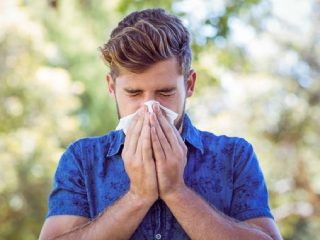 Are you distressed with constant sneezing ?
Are you distressed with constant sneezing ?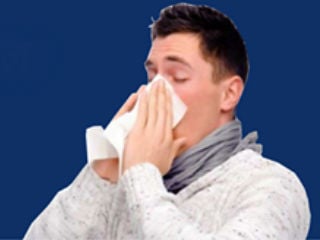 Simple Ayurvedic remedies for common ailments in winter
Simple Ayurvedic remedies for common ailments in winter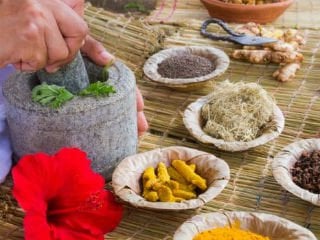 Code of conduct to be followed in winter
Code of conduct to be followed in winter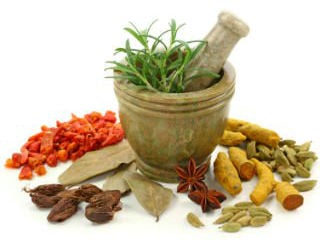 Ayurvedic Seasonal Regimen
Ayurvedic Seasonal Regimen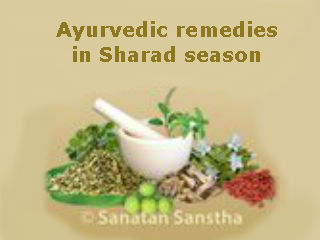 How to stay healthy in Autumn (Sharad ritu)?
How to stay healthy in Autumn (Sharad ritu)?